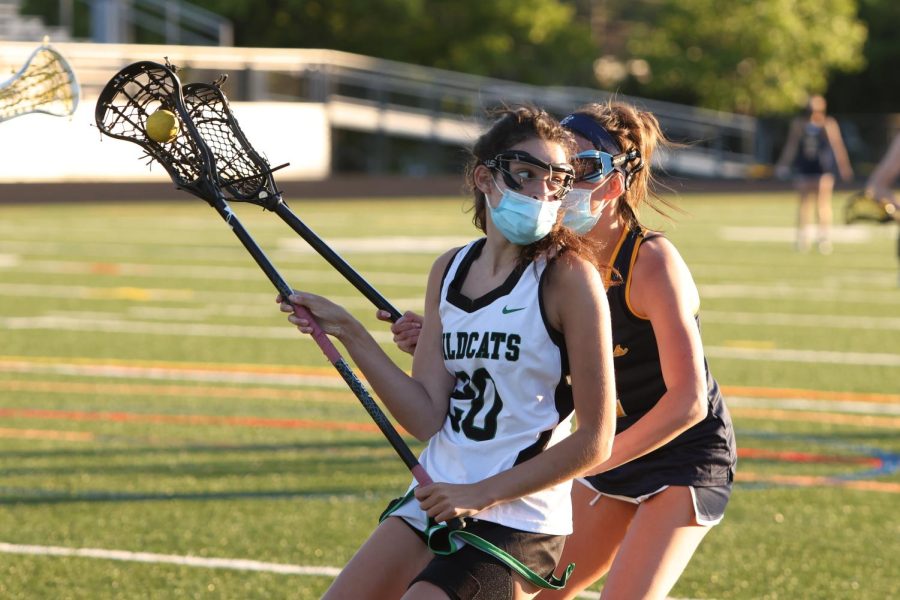With ample motivation, one could graduate with a 4.85 GPA, 1600 SAT and having taken 21 AP classes. Although few will ever achieve that feat, students still feel pressure to get as close as they can.
For many students, getting good grades is an expectation. Not only does it provide a certain level of academic and familial validation, but a strong GPA is also a requirement for getting into some of the most coveted colleges. The stress to succeed puts an unreasonable burden on students’ mental health.
Senior Marissa Krantz is one of the many students who have spent late nights and early mornings scrambling to learn that last piece of content in order to keep her GPA as close to perfect as possible.
“I am a perfectionist. I need to succeed, and a B is not succeeding in my mind, which I know is an impossible standard, but it’s hard to get out of that mindset,” Krantz said.
Krantz is not alone.
Junior Mallory Liffman sees many students impacted by the pressure to take the hardest classes possible and to succeed at every level.
“A lot of people take more APs than they can handle, because seeing others taking more APs makes some people feel like they need to increase their rigor in order to compete,” Liffman said.
Every year, college admissions get more and more competitive, pushing students to further extremes in the race to succeed. Students are well aware that their closest peers are their greatest competition in admissions. According to a Pitch survey of 670 students, 73% of students believe that the pressure to get into college negatively impacts their mental health.
“The competition to please colleges has caused me to refrain from exploring my interests and has instead presented overbearing stress,” Liffman said
Adding to the academic stress, most high achieving students are involved in a plethora of extracurricular activities.
Senior Ryan Hachey is president of the DECA club, vice president of the Model UN club and volunteers for multiple political campaigns while being on the Mock Trial team. He’s felt his workload increase as he’s taken on leadership roles in his activities.
“Taking on the leadership roles this year has added so much work. I’m in Mr. Rodman’s room every day at lunch and sometimes I just want to go out to eat and not be tied down doing work,” Hachey said.
Hachey and Krantz have both experienced the ramping up of extracurricular commitments throughout their upperclassmen years, coinciding with the increase in academic rigor that comes during junior and senior years.
“When you come to WJ, they’re like ‘join clubs, join clubs,’ but there are so many clubs here and everyone is doing so much, you don’t feel like you can do just one. And then as you get older, being in leadership for every single club you’re a part of is an unreasonable expectation and demands stretching yourself too far. But we all do it,’’ Krantz said.
Hanging over students’ heads when they do: those ten activity slots of the universally dreaded Common Application.
Hachey was admitted early decision to Tufts University in December after four years of a grueling academic and extracurricular schedule.
“It wasn’t that getting into college was my motivator for everything I did, but getting in really took off a lot of stress,” Hachey said.
That doesn’t mean senior year is without the stress and academic pressure of the past three years. As the pressure to do more ramps down, the culture of gossiping about what everyone else has done ramps up. Students are surrounded by whispers about where their peers are applying and who got in where.
Krantz points out the absurdity of the conversation seemingly happening between the entire senior class.
“Why do I know your stats and if you’re doing well or not, when I don’t even really know you and you don’t know me?” Krantz said.
In an area where 93% of teens are college-bound and the majority of adults have graduate degrees, it’s hard to avoid the culture of competition and the mental toll it takes.











































